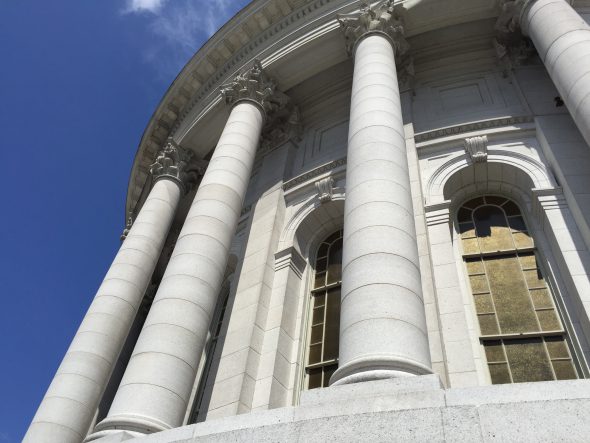Paychecks Show Big Cut In Taxes
$2 billion cut in state income taxes begins this year. Who benefits and who deserves the credit?

Wisconsin State Capitol. Photo by Mariiana Tzotcheva.
Busy working from home and trying to keep those you love safe, you may have missed one big news story from last summer: Republican legislators crafted, and Democratic Gov. Tony Evers signed into law, a $2-billion cut in state income taxes.
That income tax cut was part of the 2021-23 state budget – something only geeky Capitol reporters follow intensely. But it brings some good news at the start of the new year.
Because he’s the governor, and because he oversees the state Department of Revenue (DOR) that implemented the new withholding tables, Evers reminded taxpayers of this good news in a Jan. 10 statement. “Wisconsinites will see hundreds of dollars more in their paychecks and their pockets in 2022, and it couldn’t come at a better time as … folks and families are seeing higher prices at the grocery store checkout and as businesses face delays getting supplies and materials,” said Evers.
Specifically, Evers said, a married couple who each earn $50,000 will get about $1,200 more in their paychecks this year; a single person making $50,000, about $550 more.
State withholding tables had not been changed since 2014. DOR issued the new tables in October and told employers they had to be in place by Jan. 1.
The Democratic governor, up for re-election in November, said he had delivered on his “promise to cut taxes for working families by 10%.” About 86% of all taxpayers will pay less in income taxes, he added.
The rest of the story: It was Republican legislators who dumped the governor’s original plan to raise taxes by $1 billion on businesses and the wealthiest taxpayers, and restructure tax breaks to give that to lower- and middle-income taxpayers. Instead, Republicans authored the $2-billion income tax cut and added it to the budget. That forced a few Democratic legislators to vote for the budget, and forced Evers to sign it.
The same day that Evers put out his victory-lap statement, a top Republican, Assembly Majority Leader Jim Steineke, said his party deserves the real credit. “Republicans threw out GovEvers’ plan to hike taxes by $1 billion and turned it into $2 billion in tax cuts instead,” Steineke tweeted.
But let’s go deeper – welcome, fellow geeks – into details of the income tax cut that candidates from both parties will claim credit for before the November election. According to summaries from the nonpartisan Legislative Fiscal Bureau:
-DOR estimates that 25% of all filers last year had adjusted gross incomes (AGIs) of less than $50,000; 22.5% had AGIs of between $50,000 and $70,000; 20.1% had AGIs of between $70,000 and $100,000; 18% had AGIs of between $100,000 and $150,000; 6.7% had AGIs of between $150,000 and $200,000; and 7.6% had AGIs of more than $200,000.
-The cuts will be over two fiscal years – $1 billion in the year ending June 30, and $994 million in the following year. Next year, the governor and legislators elected in November will review taxes as part of the 2003-05 budget.
-Married couples filing a joint tax return will be helped the most. They file 54% of all tax returns but will get 75% of the benefits; the 46% of taxpayers who file single returns will get 25% of the cuts.
-The married-filing-jointly taxpayer will get an average tax cut of $812; the single filer, an average cut of $304.
-84% of tax cuts for married-filing-jointly taxpayers will go to those with taxable incomes of more than $100,00.
-Of the tax cuts going to single filers, 62% will go to those taxpayers with incomes of less than $100,000.
As it turns out≤ those tax cuts are very timely. Why?
Inflation was 7% last year – the biggest increase since 1982.
Steven Walters started covering the Capitol in 1988. Contact him at stevenscotwalters@gmail.com
If you think stories like this are important, become a member of Urban Milwaukee and help support real, independent journalism. Plus you get some cool added benefits.






















Evers is trying to take credit for this?